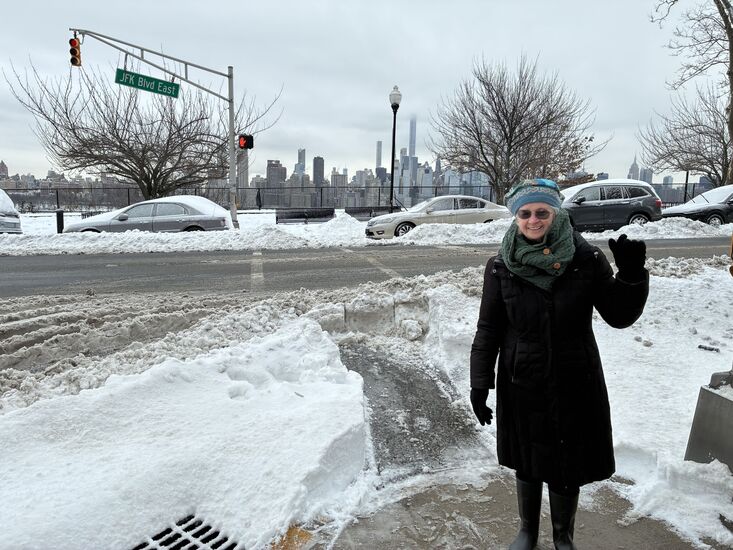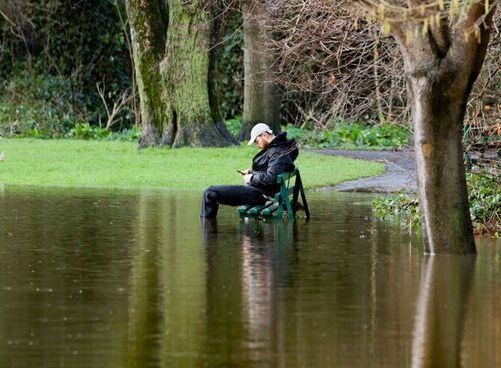Tom Vaughan-Lawlor in “Maze.”
By Frances Scanlon
It's hard to believe but throughout April 2019 a number of events will observe the twenty-fifth anniversary of the 1994 Genocide against the Tutsi in Rwanda. “Hotel Rwanda,” directed and co-written by Belfast-born Terry George, powerfully depicted how one man – hotelier Paul Rusesabagina – and his courageous acts salvaged the lives of his family and more than a thousand other refugees by sheltering within the besieged Hotel des Mille Collines. In the raging backdrop tensions between the Hutu and Tutsi peoples had lead to a genocide in Rwanda, wherein routine corruption and bribes between politicians, further escalated and in some instances facilitated the brutality of militia.
Equally hard to fathom that 2019 commemorates the twenty-first anniversary of the Good Friday Agreement let alone the thirty-sixth anniversary of the so-called "Great Escape".
Enter center stage: “Maze.”
Twenty-five years hence will any attention be paid to the film, “Maze,” which is based on the true story of the September 25, 1983 mass break-out of 38 prisoners from the HM Prison Maze, once considered the most impregnable in Europe and the biggest jail break in Europe since the Second World War?
Time-lines mark history yet history is often itself forgotten even if time always tells.
During a recent conversation - perched high above Bryant Park in Room 1904 at the Bryant Park Hotel in midtown Manhattan with actor Tom Vaughan-Lawlor - he leaped aboard that cinematic time travel tryst. Vaughan-Lawlor, who headlines “Maze,” portraying Larry Marley, prisoner and architect-in-chief of an escape which he planned but within which he was a bystander, reflects on the arc of his career to date and the centrality of this particular role.
With significant stage and screen credits now under wrap, he graduated with a degree in Drama Studies at the Samuel Beckett Centre, Trinity College, Dublin, and travelled thereafter in his early twenties to advance his craft at the Royal Academy of Dramatic Art. An unmistakable star on an ascendant glide path he is possessed of the charm, countenance and cunning to dig down deep and discover where characters live. The arc of that journey requires courage and Vaughan-Lawlor's artistic skill manifests the wherewithal to successfully take on the emotional and psychic challenge which is also an essential element of an accomplished actor's arsenal.
It all began in the South of Ireland, where he was born and developed a disposition to take his “Irishness” for granted, a form of identity privilege. It wasn't however until he embraced the words of essayist-poet R.L. Stevenson: "None can choose to stay at home, All must wander, all must roam,” that Vaughan-Lawlor really developed as a human being during his early twenties sojourn-study in London. That change of venue is where and when the transformative power of his identity actualization begins to emerge.
Yearning to find “is own tribe” during his early years of London study, it was that “dust in his soul,” a nascent part of his own story-line peering through an Irish lens viewfinder. It is in that context that Vaughan-Lawlor realized how “aggressively Irish I am,” while "embracing the narrative arc of the people of Ireland in the United Kingdom.”
The chip on my Irishman shoulder is sewn into the fabric of who you are, ruminates Vaughan-Lawlor.
Citing Catherine Dunne's "An Unconsidered People: The Irish in Sixties London" as a touchstone blueprint guiding his search, the then-journeyman actor frequently visited Kilburn, AKA the 33rd County and former heartland of London's Irish community.
How does this actor mine those now twenty years past experiences in creating a persona for a character who defies all conventional wisdom using any and all metric machinations?
Easy. Vaughan-Lawlor reconnects to the search for identity that was at the core of his twenty-something desire for self-esteem and self-realization.
“Maze,” in Vaughan-Lawlor's view, reminds people what Northern Ireland was like during the period 1968 through 1998, a reality that he believes that people have forgotten. "All these people fighting for an Irish identity."
In Maze, two men in very close psychic proximity, Prison Warden Gordon (magnificently portrayed by Barry Ward) and prisoner Marley, through sheer dint of constant physical proximity arrive at an understanding. Marley's objective, as enacted by Vaughan-Lawlor, is a premeditated manipulation of the warden that showcases the fact that they have a lot more in common than they care to admit.
Larry Marley the master escape artist befriends the guards as they increasingly drop their guards, drip-feeding his eighteen months of a measured, disciplined sole conspirator message that he strives to “be heard around the world.” More than anything, in Vaughan-Lawlor's estimation, is Marley's desire to make a grand gesture, something that would ensure that no one would ever forget his Hunger Strike comrades of 1981.
Although Vaughan-Lawlor quickly acknowledges that the two men come from strikingly opposite ideologies, they come to understand one another with a fresh perspective, ironically because sitting across a prison table affords them a recognition that they are not so different, a vantage that would be unimaginable for either in any other context beyond HRM Maze.
Explaining that clever duality of “Maze” in film construction and narrative affords space for a political message at its heart, Vaughan-Lawlor emphasizes that “Maze” also resonates with all the embellishments of a hard-core old-school thriller feature.
Curiously prison officers were consistently unarmed while working and their sole permitted instrument of defense was the baton, a standard issue stave.
Still the might of the absence of freedom itself was a monstrous force.
Harkening back to his earlier visits to Belfast, the actor recalls his perception of Belfast as a small place saddled with the intensity of a situation and people in such close proximity to one another.
Akin to the circumstances on the ground in HRM Maze, Vaughan-Lawlor analogizes the overall spatial confines of Belfast with the thought that "we are much closer than people think they are." Further, "man and woman on the street are pawns in a game of political hunger and ego."
If there's a curative elixir Vaughan-Lawlor rhetorically muses that "words are important and yet how else can we resolve conflict other than through dialogue."
Principal photography for “Maze” began during the Brexit Referendum year of 2016.
What then might this actor conjure about identity, breaking out of the borders that identity creates?
How may one escape the confines of identity?
How may one break out of the borders that identity creates?
What price identity?
What price Brexit?
If Brexit is the political manifestation of that struggle to embrace the past as if it were the last life raft onboard the Titanic, how does Vaughan-Lawlor reconcile nationalism and the legacy of insecurity that one may be born into?
Harkening back to “Maze,” Vaughan-Lawlor noted that at the end of the movie, in his cell, what does Larry Marley feel; the ending is ambiguous; has he failed? Rather instead, writer and director Stephen Burke has opted for a “brave ending, not tied up in a bow."
As much as there may be no exit from identity, once ultimately established, so there may never be an exit (back in and/or back out) from Brexit.
Belfast itself may afford a geographical primer. In the same way it morphed in the 1800s to a major port wherein the shipyard that birthed the RMS Titanic was scaled it is now host to a major aerospace and missiles industry.
During "The Troubles" the identity of Belfast was itself a prisoner with now seemingly unlikely emerging parallels to the Brexit struggle itself. Now Brexit has no breathing room, extensions notwithstanding. Now Brexit has become an H-Block-like cell for those politicians who led by fear.
Identity itself is a prison.
The long-sought resting place of Self can be a living crematory of the Soul.
What motivated “the Great Escape” may bear an unholy kinship to what truly motivated Brexit: a need to re-establish and avenge Identity.
Brexit sought to undo what the Troubles re-set. Surely those legal, social, economic and societal hard-fought accomplishments cannot become “collateral damage.”
Vaughan-Lawlor's comments on his character, Larry Marley, bear consideration as well in the Brexit milieu: “Reconcile identity with redemption.”
Twenty-five years from now perhaps “Maze” will be remembered alongside Brexit as two bookends to a more supple fusion of identity throughout the Emerald Isle and Britain, as well.
“Maze” continues in New York through tomorrow and will open in Santa Monica and Pasadena on March 29, San Francisco and New Orleans on April 5, Minneapolis on April 8, Chicago, and Detroit on April 12.







